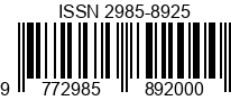Analisis Hukum Islam terhadap Wakaf uang sebagai Instrumen Keuangan Syariah di Indonesia
DOI:
https://doi.org/10.54298/tarunalaw.v3i01.293Keywords:
Islamic Law, Islamic Financial Instruments, Cash WaqfAbstract
The practice of cash waqf in Indonesia has grown rapidly in recent decades as one of the Islamic financial instruments that is increasingly recognized and accepted by the Muslim community. The practice of cash waqf in Indonesia is supported by the fatwa of the Indonesian Ulema Council (MUI) and comprehensively regulated in Law No. 41/2004 on Waqf. The government also plays an active role through the establishment of the Indonesian Waqf Board (BWI) as an independent institution authorized to promote and develop waqf, including cash waqf. This research aims to analyze the validity and suitability of cash waqf practices in Indonesia based on Islamic law. The research method used is qualitative analysis with a literature study approach. The results show that the practice of cash waqf in Indonesia can be qiyaskan (analogized) with other movable object waqf which is justified in Islamic law
References
Anindhita, Aulia Eka. “Cash Waqf Linked Sukuk Sebagai Solusi Pemulihan Ekonomi Pasca Covid-19” (n.d.).
Aslama Dwi Putri, Nuriyyatiningrum Hasanah Mahdaniyal, Septiana, and Yunita Dewi "MANAJEMEN PRODUKTIVITAS WAKAF BADAN AMIL ZAKAT NASIONAL (BAZNAS) DAN BADAN WAKAF INDONESIA (BWI)."
A. Sofiyani dan Kartika H (2023). EFEKTIVITAS FUNDRAISING WAKAF DENGAN LAYANAN WAKAF ONLINE PADA BADAN WAKAF AL- QUR’AN (BWA) SOLO (Doctoral dissertation, UIN Surakarta).
Dahlan, Rahmat. “Análisis Kelembagaan Badan Wakaf Indonesia.” ESENSI 6, no.
(May 17, 2016). Accessed November 12, 2024. http://journal.uinjkt.ac.id/esensi/article/view/3125.
Hasan, Sudirman. “Wakaf uang dan implementasinya di Indonesia.” de Jure: Jurnal Hukum dan Syari’ah 2, no. 2 (2010): 162–177.
Hidayat, Ahmad Riza, Rizky Firmanul Hakim, Azma Zainul Taufiqulloh, and Siti Syarifah. “MANAJEMEN WAKAF DALAM PERSPEKTIF HUKUM ISLAM DAN UNDANG-UNDANG NO. 41 TAHUN 2004.” Filantropi :
Jurnal Manajemen Zakat dan Wakaf 4, no. 1 (April 10, 2023): 14–26.
Hidayatullah, Syarif. “WAKAF UANG DALAM PERSPEKTIF HUKUM ISLAM DAN HUKUM POSITIF DI INDONESIA” (n.d.).
HIMA ANITA, LUSIANA. "Tinjauan Hukum Islam terhadap eksistensi wakaf tunai."
Kholid, Hendra. “KONSENTRASI PERBANKAN SYARIAH PROGRAM STUDI MUAMALAT (EKONOMI ISLAM) FAKULTAS SYARI’AH DAN HUKUM UIN SYARIF HIDAYATULLAH JAKARTA 1429 H / 2008 M,” no. 41 (2004).
Medias, Fahmi. “Wakaf Produktif Dalam Perspektif Ekonomi Islam.” La_Riba 4, no. 1 (2010): 71–86.
Saadati, Nila. “Efisiensi Produktifitas Wakaf Tunai (Wakaf Uang) dalam Pemberdayaan Ekonomi di Indonesia.” Muqtasid: Jurnal Ekonomi dan Perbankan Syariah 7, no. 1 (June 1, 2016): 73–91.
Sulistyani, Diah, Nur Asikin, Soegianto Soegianto, and Bambang Sadono. “PELAKSANAAN DAN PENGEMBANGAN WAKAF UANG DI INDONESIA.” JURNAL USM LAW REVIEW 3, no. 2 (December 11, 2020): 328–343.
“Hukum Dan Urgensi Wakaf Tunai Dalam Tinjauan Fikih | BUSTANUL FUQAHA: Jurnal Bidang Hukum Islam.” Accessed November 12, 2024. https://journal.stiba.ac.id/index.php/bustanul/article/view/132.
“MANAJEMEN WAKAF DALAM PERSPEKTIF HUKUM ISLAM DAN
UNDANG-UNDANG NO. 41 TAHUN 2004 | Filantropi : Jurnal Manajemen Zakat Dan Wakaf.” Accessed November 11, 2024. https://ejournal.uinsaid.ac.id/index.php/filantropi/article/view/8029.
“Menakar Progresivitas Hukum Wakaf Dalam Pengembangan Wakaf Uang Di Indonesia | Al-Ahkam: Jurnal Ilmu Syari’ah Dan Hukum.” Accessed November 12, 2024. https://ejournal.uinsaid.ac.id/index.php/al- ahkam/article/view/1470.
“Studi Analisis Wakaf Uang Dalam Kompilasi Hukum Islam, Fatwa MUI, Dan UU No. 41 Tahun 2004, Dalam Mendorong Pemberdayaan Ekonomi Umat | MAQASID.” Accessed November 12, 2024. https://journal.um- surabaya.ac.id/Maqasid/article/view/1412.
“Tinjauan Fiqh Muamalat Dan Hukum Nasional Tentang Wakaf Di Indonesia - Repository UIN K. H. Abdurrahman Wahid Pekalongan.” Accessed November 12, 2024. http://repository.uingusdur.ac.id/id/eprint/24.
Downloads
Published
How to Cite
Issue
Section
License
Copyright (c) 2025 Qathrina Qanitatin Nadhirah Alfawwaz, M. Faiq Mufadhol Hilmi, Sri Wigati

This work is licensed under a Creative Commons Attribution-ShareAlike 4.0 International License.
Authors who publish with this journal agree to the following terms:
- Authors retain copyright and grant the journal right of first publication with the work simultaneously licensed under a Creative Commons Attribution-ShareAlike that allows others to share the work with an acknowledgement of the work's authorship and initial publication in this journal.
- Authors are able to enter into separate, additional contractual arrangements for the non-exclusive distribution of the journal's published version of the work (e.g., post it to an institutional repository or publish it in a book), with an acknowledgement of its initial publication in this journal.
- Authors are permitted and encouraged to post their work online (e.g., in institutional repositories or on their website) prior to and during the submission process, as it can lead to productive exchanges, as well as earlier and greater citation of published work (See The Effect of Open Access).














